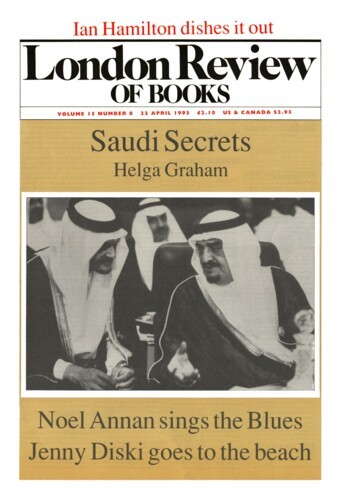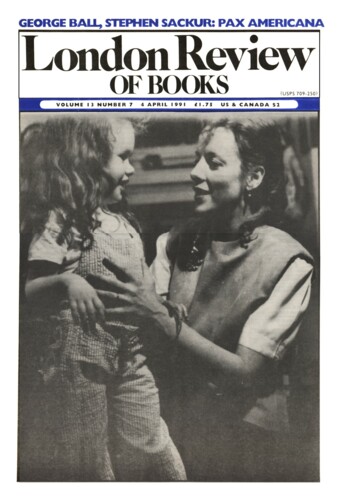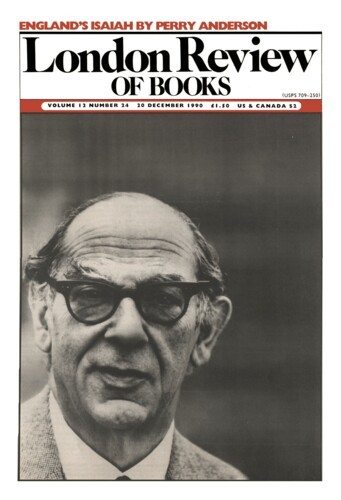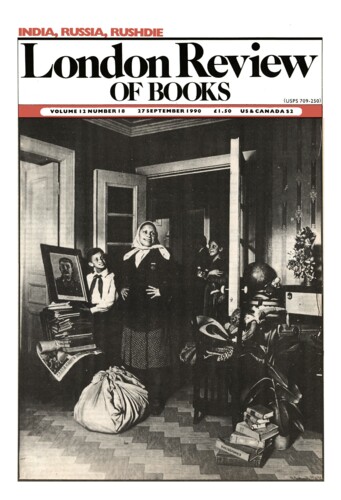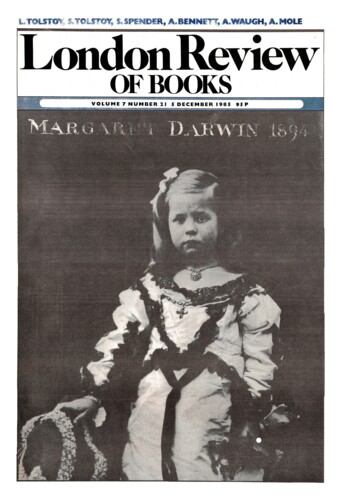Singing the Blues
Noël Annan, 22 April 1993
Who better to be our guide to modern Cambridge than the Dixie Professor of Ecclesiastical History? Christopher Brooke was brought up in Cambridge, the son of the professor of medieval history and himself a post-war Apostle. He begins by whisking us round the colleges telling us what each was like in Victorian times and how the abolition of the religious Tests and the Royal Commission (1872) transformed Cambridge from being a provincial seminary and a federation of colleges into a university of faculties and departments where the dons could marry and no longer had to be clergymen. But on such a tour there is always a pest who asks questions. What, he wonders, are the colleges like today? Did Snow give an accurate account of Christ’s? What about the way Nevill Mott was treated as master of Caius that led to his resignation? What of the delectable days of Lord Dacre in the Lodge at Peterhouse? Surely space could have been found to praise the leadership Trinity gave to science by using her great wealth to found the Science Park and the Isaac Newton Institute, and make Cambridge a scientific city as well as a university.
